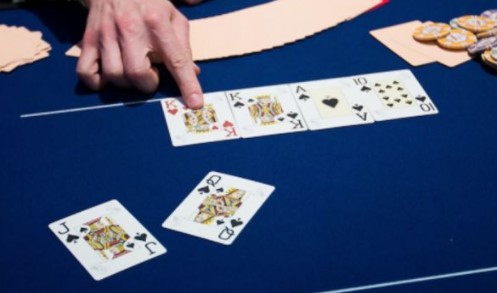The online poker market is fiercely contested, one of the many competing poker sites on the marketplace. With each poker room battling for company, I wanted to look at how they earn their money and how real offers to prospective players are.
Personally, the first guideline before venturing any further is that there’s very little that’s free. If a company is offering #500 free, it is #500 that includes a couple of conditions (usually included in the more delicate print). The gaming industry is just like any other. Whether it’s shopping at Sainsbury’s and constructing your Nectar points, making payments through Neteller and earning points, or something as straightforward as buy one get one free. None of these offers are freebies since they still involve you spending cash. Getting you to invest money where you would not otherwise have done is something that occurs on a large-scale, particularly in the retail sector.
It would not be the first time that I have seen someone near me buying something because they got another one free.
Now, all of us know this – this is not revolutionary. Understanding how it works only helps us to look at offers in their right light. Some suggestions are terrific, while some are smoke and mirrors. This is a place I wish to cover in this report. Before I do this, I wanted to pay off how online casino poker sites make their money.
Internet Poker is a bit different from other gambling’ company as the rooms do not have a stake in 1 player over another. Whether one player wins another is neither here nor there, and rightly so, as this would be unethical. Poker Rooms makes their cash in two critical ways.
Players like money games, otherwise called ring games, or they can play tournaments. In-ring games, the website would take a percentage of each pot, typically between 3 and 5 percent of the whole pool. The amount varies, but it’s incredibly uncommon to see anything above the 5% mark. Each tournament could have a commission in the championship arena, usually at 10 percent of the purchase. That’s to say, whether a contest cost #100, the area takes the fee would probably be 10 – displayed as #100 + #10. This is relatively standard, and with one of the essential attractions being that large amounts of money can be won for relatively small buy-ins, the fee is viewed as acceptable by gamers.
How Much Can the Poker Rewards Make?
How long is a piece of string? The bigger rooms make a whole lot of money. Take PokerStars, which frequently sees over 250,000 players logged in and playing. The earnings are staggering. Many smaller chambers still make money but find it hard to compete with the larger players on the market. You may ask how they live, and that would be a great question. His strategy is to attract the less expert players or what they survive easier. This makes it safer ground for many small players who don’t like to be taken over.
This makes these rooms an ideal floor for the better player as play’s caliber is much worse than on more extensive networks or websites.
I Have Seen Many Promotions Offered. Are they Genuine?
It’s typical for poker rooms to provide an introductory offer, typically a signup bonus or free entry into a freeroll as well as promotions for their present players. Let us begin with the signup bonus. These can vary from $50 up to $2,000 or so. Going back to my point at the start of this guide, let’s not forget – nothing is free. If you’re anticipating free money just for signing up, you are likely to be disappointed.
These bonuses are earned as you perform. Each game room will distribute the equivalent of VIP points that you will get during the game. These points are used to exchange them for money, tournament tickets, or other merchandise. As with most games, the more active, the more points you get, so the larger the rewards. Another case of you will need to spend to make your bonus. Having said that, if you will be playing anyway, it’s still free cash when it is earned.
From time to time, you may see no deposit bonuses offered. This is nothing more than a hoax, as mentioned, to attract more customers. The fine print states that you will need to bet a certain amount before you can take it in such offers. So while it is your money on your player account, you can not do anything with it until they first earn their money. It isn’t a good offer, just advertising. Read the small letters and understand the withdrawal requirements.
The one area that’s real is the offer of entrances of freerolls or tournaments for newbies. Win on tournaments can make that this money may be pulled, so this is a terrific way to kickstart your bankroll when you have restricted starting capital.
While I always advise players to look for the best deals, I strongly believe that there are great deals available. Poker rooms generate huge sums of cash, and some websites try to give their players some of that money, which is vital to maintaining the player base.
In the intricate world of online poker, discerning between the allure of apparent generosity and the substance of real value is pivotal. Bonuses and promotions, while enticing, form part of a strategic design aimed at nurturing player commitment and investment. This insight ushers us into an essential facet of online poker’s economy: the retention of players and the cultivation of a sustainable gaming milieu.
Delving into the Sustainability of Online Poker Ecosystems
The landscape of online poker rooms has matured, recognizing the necessity of fostering a harmonious ecosystem. This necessitates addressing the varied needs of different player groups, spanning from greenhorns to the battle-hardened veterans. For the neophytes, access to low-stakes games and freerolls (tournaments free of entry fees) is indispensable. These platforms offer a sanctuary for learning, free from the daunting prospect of clashing with far more seasoned adversaries.
At the other end, the high rollers and prestigious tournaments cater to the veterans of the game. These arenas promise not just more substantial monetary rewards but also a sense of prestige and competitive spirit, crucial in retaining players whose aspirations transcend mere financial gain.
Segmentation and Customized Marketing: A Player-Centric Approach
Grasping the nuances of player behavior is a cornerstone for poker sites in fine-tuning their marketing strategies. Regulars may find themselves enticed by rewards designed to sustain their engagement levels, whereas the more sporadic players might be nudged towards more frequent participation.
Here, loyalty schemes come into play significantly. Tailored to honor the degree of a player’s involvement and commitment, these programs escalate the rewards proportionately, nurturing a bond of loyalty and dedication to the platform.
Technological Innovation: Elevating the Player Experience
The advances in technology have profoundly influenced the operational and engagement strategies of poker sites. From the convenience of mobile apps that allow gameplay on the move to advanced software ensuring fairness and unpredictability, technology lies at the heart of the contemporary online poker experience.
Moreover, the application of Artificial Intelligence (AI) and Machine Learning (ML) is revolutionizing the personalization of player experiences. These technologies can dissect player behavior and preferences, offering bespoke game suggestions, challenges, and rewards.
The Role of Regulation and Advocacy for Responsible Gaming
Regulatory frameworks are instrumental in sculpting the online poker sector. Licensed and regulated entities assure fair play, secure transactions, and adherence to ethical standards, all crucial for player confidence and the industry’s longevity.
Furthermore, the emphasis on responsible gaming is increasingly prominent. Poker platforms are progressively implementing measures to mitigate problem gambling, such as setting deposit limits and offering self-exclusion options, along with resources for those seeking assistance.
Concluding Thoughts
To encapsulate, the online poker market transcends the mere provision of gaming opportunities. It’s about engineering a balanced ecosystem that resonates with diverse player needs, harnessing technology to augment experiences, and operating within a framework that champions fair and responsible gaming. Collectively, these elements fuel the sustainability and evolution of the online poker industry, rendering it a dynamic and continually evolving domain.

